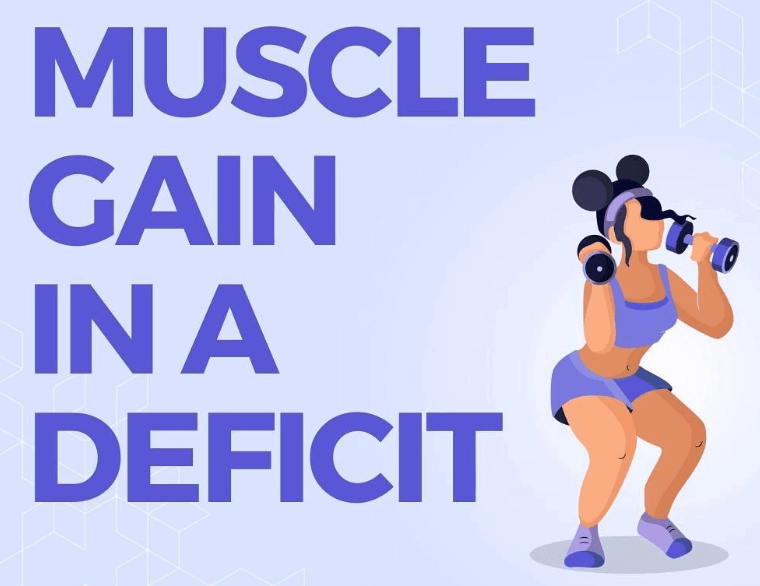People often want to lose fat and build muscle. Unfortunately, these goals generally lead to contradictory recommendations for caloric intake.
Short-term energy deficits impair anabolic hormones and muscle protein synthesis (muscle building) However, the effects of prolonged energy deficits on resistance training outcomes remain unexplored.

AIM OF THE STUDY
A 2022 meta-analysis (an analysis that combines the results of multiple scientific studies) aims to review the impact of an energy deficit on strength and lean mass gains in response to resistance training.
PMID: 34623696

The researchers hypothesized that “lean mass gains, but not strength gains, would be significantly reduced conducted in an energy deficit compared to those without.”
METHODS
These researchers conducted a systematic review of PubMed and SportDiscus for randomised controlled trials performing resistance training in an energy deficit.
Studies included implementing resistance training protocols that were at least 3 weeks long, utilised a training frequency of at least 2 sessions per week, and did not involve aerobic training.
In the first finding (analysis A), energy deficits led to significantly smaller gains in lean mass when compared to a control diet. Energy deficits also led to smaller gains in strength, but the effect size was smaller, and the effect was NOT statistically significant.
RESULTS
Figure 1 – Forest plots of Analysis A for the effect on lean mass (A) and strength (B)

In the second finding (Analysis B), For studies involving an energy deficit, the pooled effect size for lean mass was negative, meaning lean muscle mass is reduced during deficit.

While it was positive for studies that did not involve an energy deficit, meaning there was an increase in lean muscle mass on studies not involving an energy deficit. For strength gains, effect sizes were positive and similar in magnitude whether studies did or did not involve an energy deficit.
As for the relationship between energy deficits and changes in lean mass, there was a statistically significant negative relationship between the size of the energy deficit and the magnitude of changes in lean mass.

As the energy deficit grew by 100kcals/day, the effect size for lean mass tended to drop by 0.031 units. A deficit of ~500kcals/day was predicted to fully blunt lean mass gains and estimated changes in lean mass became negative for energy deficits beyond ~500kcals/day.
INTERPRETATION
If gaining lean mass is your priority, you should avoid a calorie deficit. As studies suggest, maximising hypertrophy (muscle size) is an energy-intensive process and should be optimally supported by a state of sufficient energy availability.
The process of building muscle involves the energy cost of:
- resistance training
- post-exercise elevations in energy expenditure,
- increased protein turnover (degradation and synthesis)
ADDITIONAL INFO
It is still possible to build muscle in calorie deficit / achieve body recomposition (build muscle while losing fat) if you are:
- New Lifter (Beginners)
- Detrained Lifter (Detrainees)
- Obese Individuals
- Anabolic Steroid User
Simultaneous fat loss and muscle gain is indeed possible, although it becomes less feasible as an individual’s body-fat level decreases and training status increases.
TAKEAWAY
- The most direct path to fat loss is a caloric deficit, while caloric surplus offers the smoothest path to gains in strength and lean mass.
- Large energy deficits threaten lean mass growth, and extended periods of excessive energy restriction can impair strength gains as well.
- “Recomping” can theoretically be achieved in the context of weight loss, gain, or maintenance, but the dietary approach should be individualised based on one’s body composition, training status, and priorities.
